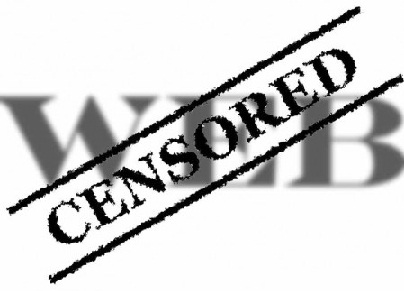The Internet was designed to allow the open access of information, but this open access does not fit with the agenda of many governments. However, the nature of censorship varies greatly from country to country. Here are five countries that censor the Internet to some extent and what makes their particular censorship unique.
Australia :
Australia does not explicitly censor the Internet, but the government does actively monitor websites and requires users to verify their age to access certain sites. Of concern to those who advocate for an open Internet, leaders in Australia have been discussing implementing filters for years, and some believe that they will ultimately succeed.
China :
Despite its rapid economic growth, the leaders of China feel that the country is vulnerable to internal disruptions. As a result, the so-called Great Firewall of China blocks material that might be construed as potentially dangerous. Discussions related to the independence of Tibet or Taiwan are often blocked, and content that discusses Tiananmen Square or other examples of police brutality is often restricted.
Iran :
Iran is considered by many to have one of the most extensive Internet filtering systems around, and those who live in Iran often find themselves unable to access social media and content that speaks out against the government. However, two-thirds of the Iranian populace is younger than 30, and young Iranians often have little trouble getting around these filters by using proxies and other tools.
North Korea :
Home to perhaps the most oppressive government in the world, North Korea is the most restrictive country with regard to the Internet. An estimated 4% of the population can access the Internet at all, and those who do have access are only allowed to visit a small subsection of what the Internet has to offer. Unlike China and Iran, North Koreans have few resources for getting around these filters, and the penalties for circumventing a filter are harsh.
Pakistan :
Internet filtering in Pakistan is perhaps more intermittent and unpredictable than Internet filtering anywhere else. While Pakistanis generally experience minimal restrictions, authorities sometimes block YouTube and other major Internet sites for lengthy periods of time. This unpredictable blocking makes it difficult for some who work in Pakistan’s booming tech industry to know what they will be able to access and when.
While many in the developed world view the Internet as a means of providing education and entertainment, some governments view the Internet as a threat. As technology for blocking Internet access improves, methods of working around these filters are developed as well, and it should not be assumed that someone who lives in a country with restricted access is unable to view particular web pages.



